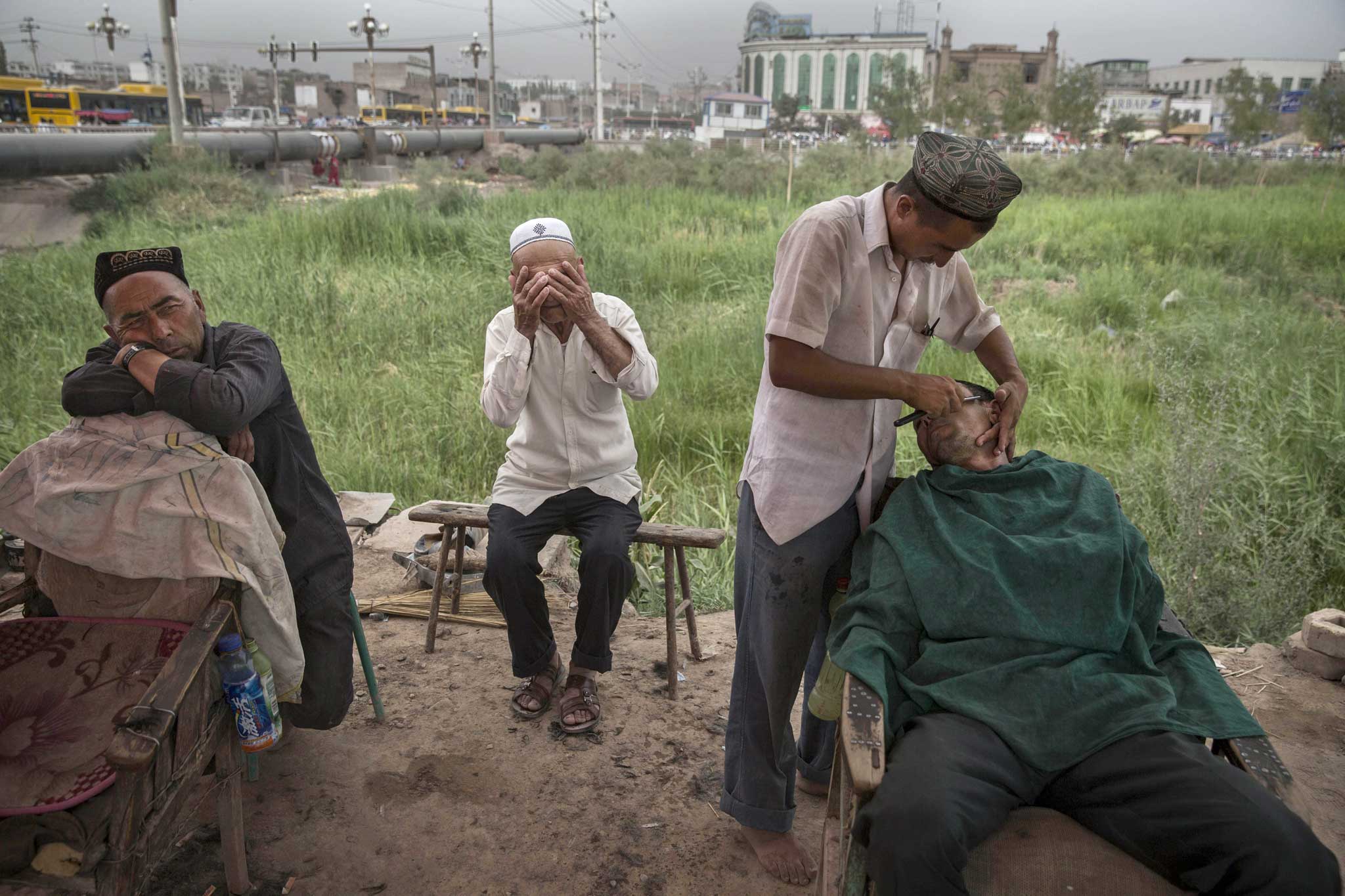The Emperor Far Away: Travels at the Edge of China by David Eimer, book review
Thousands of miles from Beijing, China reveals itself as far from homogenous

Your support helps us to tell the story
From reproductive rights to climate change to Big Tech, The Independent is on the ground when the story is developing. Whether it's investigating the financials of Elon Musk's pro-Trump PAC or producing our latest documentary, 'The A Word', which shines a light on the American women fighting for reproductive rights, we know how important it is to parse out the facts from the messaging.
At such a critical moment in US history, we need reporters on the ground. Your donation allows us to keep sending journalists to speak to both sides of the story.
The Independent is trusted by Americans across the entire political spectrum. And unlike many other quality news outlets, we choose not to lock Americans out of our reporting and analysis with paywalls. We believe quality journalism should be available to everyone, paid for by those who can afford it.
Your support makes all the difference.A group of children from China's 56 ethnic minorities paraded in the Bird's Nest stadium at the opening ceremony of the 2008 Olympic Games in Beijing. They were all dressed in their respective traditional garbs. The section was supposed to advertise modern China's ethnic diversity and harmony.
But it later emerged that the children were, in fact, actors from the dominant Han ethnic group. That episode seemed, to many observers, emblematic of the Chinese state's attitude and behaviour towards those non-Han peoples within China's borders: clumsy, patronising, nominally tolerant but covertly repressive.
It is important to remember that the territorial borders of the modern Chinese state are largely an inheritance from its last imperial dynasty, the Qing, who annexed Inner Mongolia, the Tibetan plateau and the far western province of Xinjiang. And the Qing emperors were, of course, Manchurians.
From the very first days of republican China in 1911 there has been an official ambivalence towards the non-Han inhabitants of this multi-ethnic empire. The early racial rhetoric of the first president of China, Sun Yat-sen, marginalised them. Yet the nationalists were terrified of the new China breaking apart and were desperate to keep hold of the territories where these "non-Chinese" minorities lived. The Communists who took power in the 1950s adopted the same logically fuzzy strategy.
David Eimer's book The Emperor Far Away is an engaging journal of his travels through some of these liminal lands. There's some lovely writing. A Hui Muslim travelling companion in Xinjiang seems to bring Eimer nothing but bad luck. A description of a boozy Nangma night club subverts the stereotype of the placid and spiritual Tibetans. Eimer, a former writer for the Telegraph titles and the South China Morning Post, has a pleasing turn of phrase. "A Tibetan pit toilet", he remarks, "can induce constipation in someone suffering from dysentery."
He documents the legitimate grievances of China's minorities – the religious oppression of the Uighurs and the Tibetans, and their economic alienation that has accompanied an influx of Han into their territories. Eimer is honest about his feelings of "empathy with those who live at the edges of countries". But his understanding of the tendency of outsiders to romanticise the minorities, particularly the Tibetans, means he avoids the trap of giving a simplistic account of Han oppression.
It's not a complete survey by any means. Eimer does not, for instance, travel to the Mongolian regions of China. This is a shame because there are twice as many ethnic Mongolians living in China as there are in Mongolia proper.
And a little more context might have been useful. In some ways the Han are treated worse than the ethnic minorities by the state authorities. The minorities, for instance, are not bound by the one-child policy. And their children receive positive discrimination in university applications. Yes, freedom of association is proscribed for Tibetans and Uighurs. But the same is the case for the Han. The Communist Party, one might argue, is an equal opportunities oppressor.
The Han are also very far from monolithic themselves. Regional rivalries are intense, often spilling over into outright bigotry. Movements of rural Han to the big coastal cities are often just as resented by urban Han as the movement of Han to the border lands are by the locals. Eimer notes that the Dai people of Yunnan province are worried at the smothering of their language in the embrace of official Mandarin. Yet I have heard Han in Guangdong province voice similar complaints about the future of their own mother tongue, Cantonese.
So what of the future? The Qing, in their 18th-century pomp, practiced a kind of enlightened multiculturalism with respect to their conquered realms. "I use their own languages and do not rely on an interpreter… to conquer them with kindness," claimed the Qianlong emperor. Can modern China ever return to that ideal? Who knows. But it should.
Ben Chu is the author of 'Chinese Whispers: Why Everything You've Heard About China is Wrong'.
Join our commenting forum
Join thought-provoking conversations, follow other Independent readers and see their replies
Comments